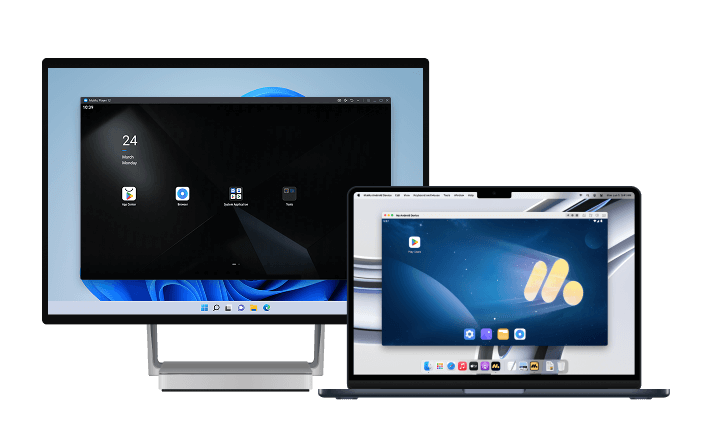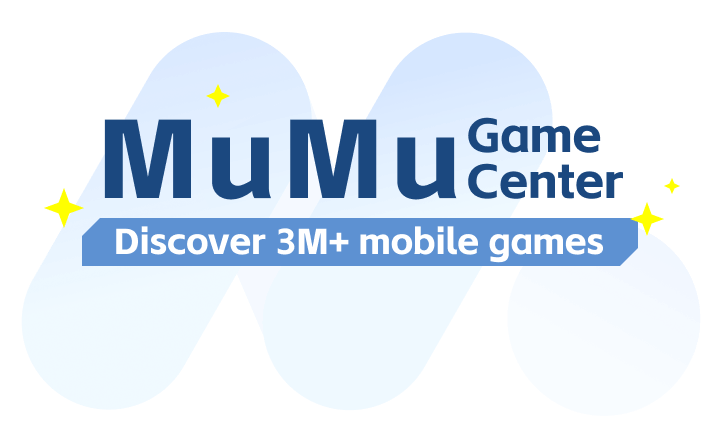Best Android Emulators in 2025 for PC and Mac: 21 Top Picks Compared
Whether you’re a gamer chasing ultra-smooth 240+ FPS performance or a developer testing apps with GPS and sensor simulations, there’s an Android emulator designed for your needs. Emulators let gamers enjoy mobile titles on PC, help developers test apps efficiently, and give everyday users the freedom to run mobile-only tools on desktop.
But with so many options available, how do you know which one fits best? Which emulator offers the right balance of features, performance, and usability?
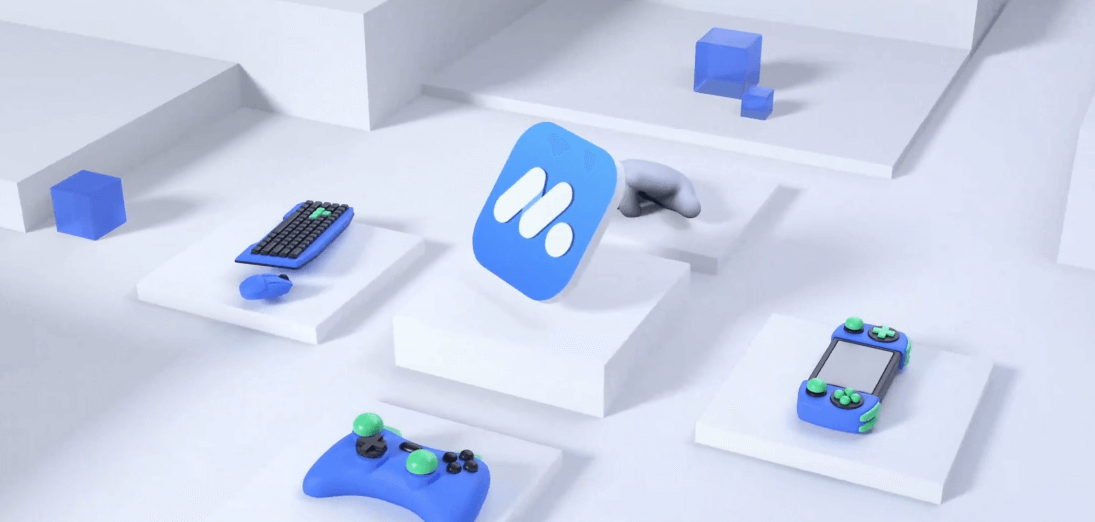
In this guide, we break down 20+ of the most popular Android emulators, covering features, pricing, and real user feedback—while also highlighting why MuMuPlayer stands out with powerful performance, stability, and advanced tools. Here’s a quick look at some of the top picks:
- MuMuPlayer – Android 12, 240+ FPS, multi-instance & ADB support
- BlueStacks – Macros, Eco Mode, APK drag & drop
- LDPlayer – High compatibility, macro & screen recording
- NoxPlayer – Multi-instance, controller support, scripting
- MEmu – GPS simulation, custom key mapping, root access
These are just a few of the most recognized names in the emulator space. In the following sections, we’ll dive deeper into 20+ Android emulators, exploring their unique features, performance, pricing, and user feedback—so you can confidently choose the one that best fits your needs.
Top 21 Android Emulators at a Glance - 2025 Quick Comparison Table
In-Depth 2025 Reviews: The 21 Best Android Emulators
1. MuMuPlayer (2025 Top Recommendation)
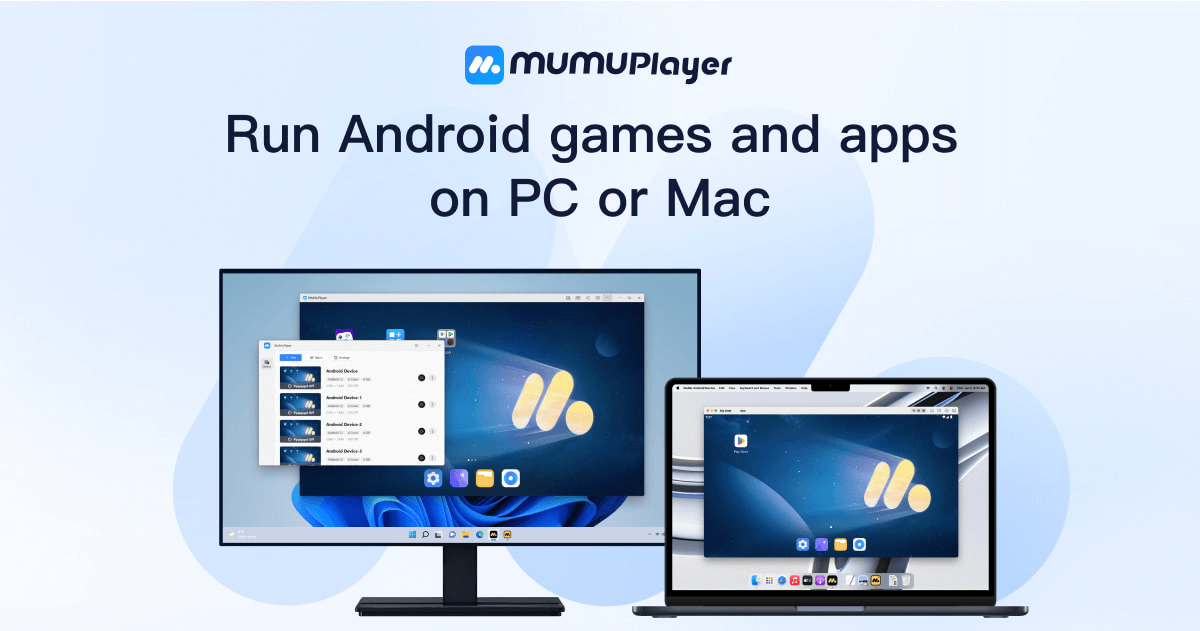
Supported Platforms: Windows (Win 7 or higher), macOS (M series chips only)
Android Version(s) Supported: Android 12
Pricing: Windows (Free), MacOS (Subscription Plan after 7-day free trial)
Key Features
- 240+ FPS Gaming – Enjoy ultra-smooth gameplay far beyond the standard 60 FPS.
- Custom Controls – Full support for personalized keyboard and gamepad key mapping.
- Multi-Instance – Run several games or accounts simultaneously without lag.
- Developer Modes – ADB support for app testing and device property customization.
- MacOS Gesture Control – Enhanced interaction with gesture features (macOS version).
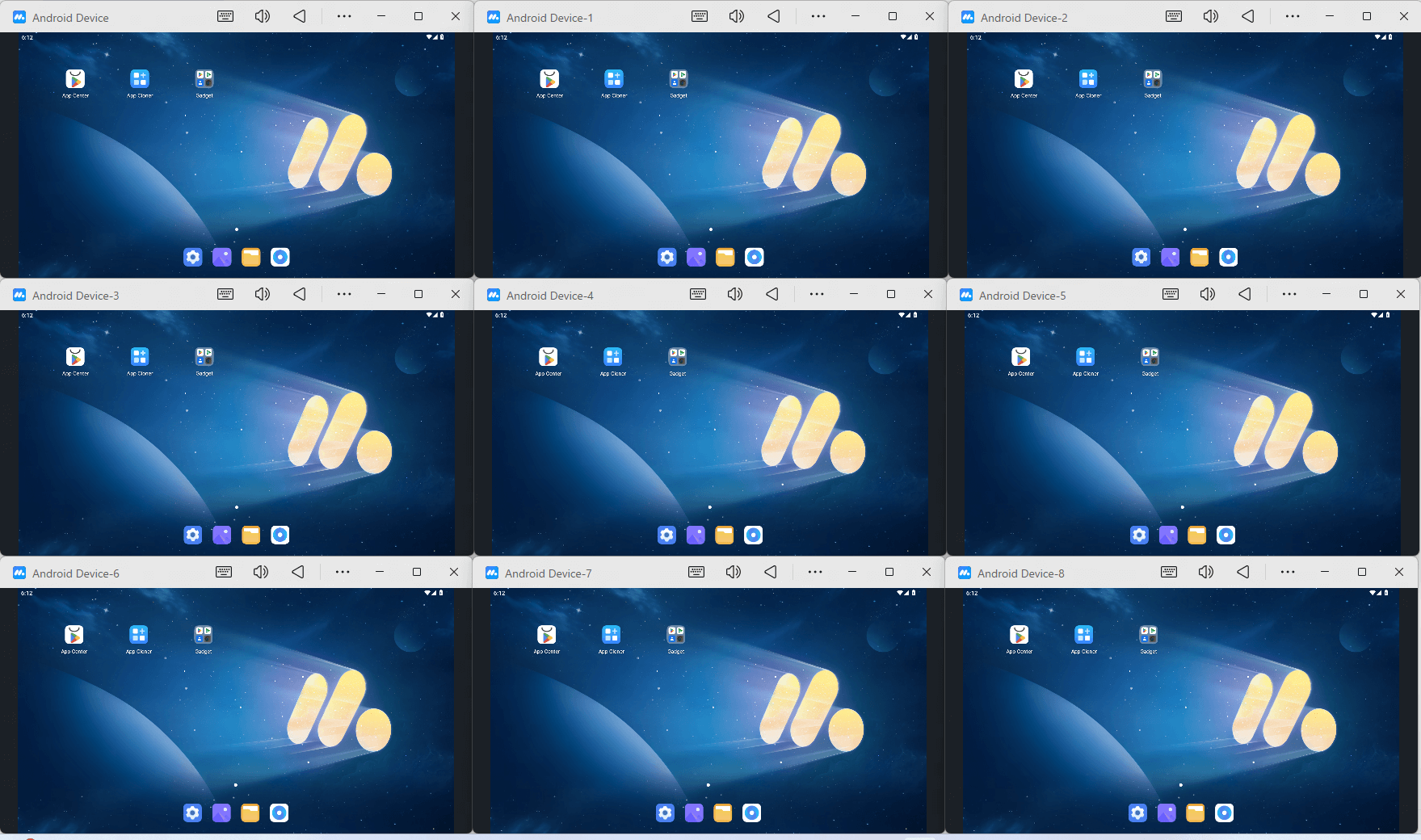
MuMuPlayer is not just for gamers—it’s a powerful emulator for developers, productivity seekers, and anyone who wants to push Android apps to the next level on PC.
The developer of MuMuPlayer is NetEase. Unlike other Android emulators, MuMuPlayer is a product of one of the world's largest gaming companies. Their deep understanding of graphic technologies enables reduced memory usage, high stability, and a staggering framerate of 240+ FPS, surpassing the native limit of 60 FPS. Imagine the competitive edge for gamers!
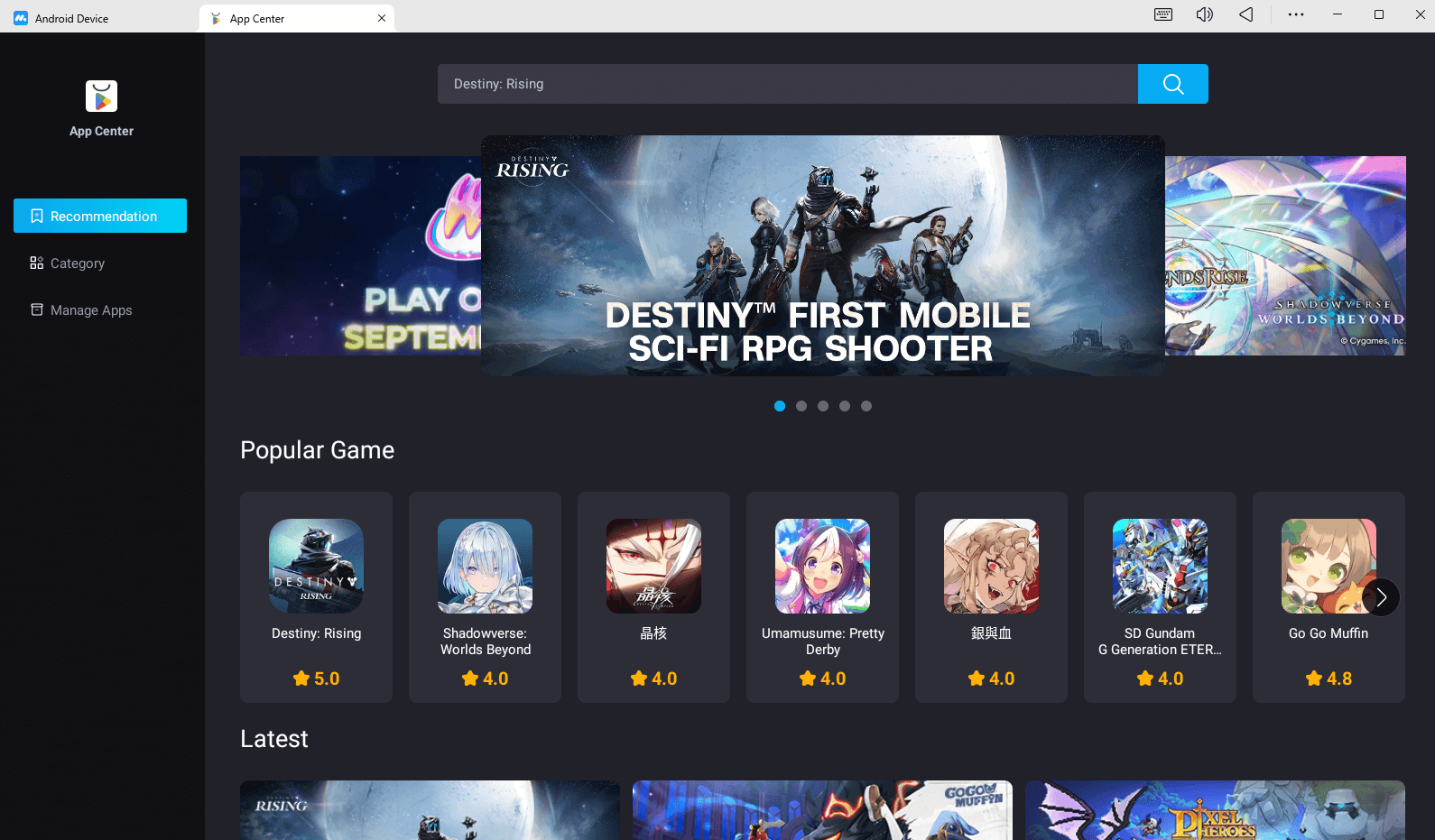
The MuMuPlayer has applications beyond gaming. It allows ADB (Android Debug Bridge) for developers to test app performance and customize device properties. Moreover, it can run multiple instances of gaming and non-gaming apps. The macOS versions have an additional feature of gesture control.
|
|
|
|
|
|
2. BlueStacks
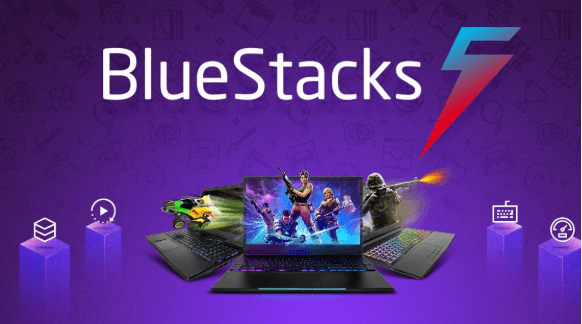
Supported Platforms: Windows (Win 7 or higher, Intel or AMD CPU with at least 4GB RAM), macOS (macOS 11 Big Sur or higher, Apple Silicon chips only).
Android Version(s) Supported: Android 11 and a beta version for Android 13
Pricing: Free to Use
Key Features
- Eco Mode to Reduce Resource (CPU and GPU) Usage
- Macro Creation for Complex In-Game Combos
- Ability to Choose Specific Android Version for Games
BlueStacks has been around for more than a decade, with its first version launched in 2011. Their flagship version, BlueStacks 5, runs using Android 11. Their cloud gaming service includes BlueStacks X, which runs directly from the browser. Its highlight is its comprehensive resource control and management. Moreover, users can simply drag and drop an APK onto the BlueStack screen to start the installation process.
|
|
|
|
|
|
3. LDPlayer
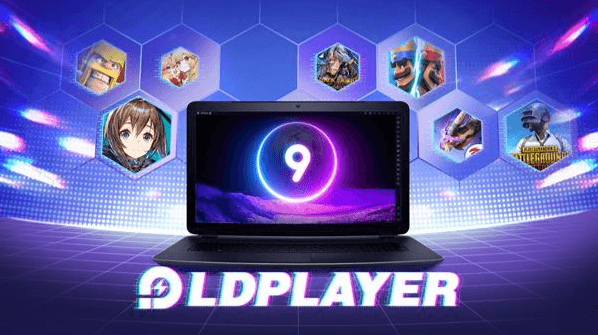
Supported Platforms: Windows (Win XP/7/8/10/11, x86/x86_64 CPU, with at least 4GB RAM). No Support for macOS.
Android Version(s) Supported: LDPlayer has multiple versions that support different Android OS versions. Standard versions are based on Android 9 (Pie) and Android 7.1 (Nougat).
Pricing: Free to use. (Include Advertising and Sponsored Offers)
Key Features
- Multiple Versions for Different Android Versions
- Powerful Performer on Low-End PCs
- Macro Recorder
Users who want to utilize their laptop or PC to the fullest use LDPlayer to turn it into a powerful gaming machine that runs the latest software, utilizing all of the PC hardware, including CPU, GPU, and RAM, to make sure that your device is optimized for perfect compatibility with the latest gaming titles. If you love playing competitive games like PUBG, Call of Duty, Clash of Clans, or Clash Royale, and gain a competitive advantage using custom keyboard and mouse mapping, this emulator is a perfect fit. A great proof of its compatibility is that the most popular game publishers have elected to use LDPlayer as an emulator to offer their games for PC.
|
|
|
|
|
|
4. NoxPlayer
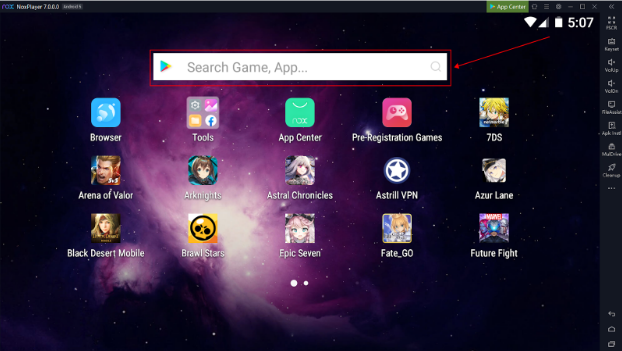
Supported Platforms: Windows 11 or Windows 10, or MacOS. Multiple core processor, 4GB RAM, and 2.5 GB Free Disk Space
Android Version(s) Supported: Android 9 or Android 12 Beta
Pricing: Free to use, but users may see in-app ads to support developers
Key Features:
- Supports all GPS-based games
- Supports app testing and development
- In-app screen recording and macro recording
When it comes to the best emulators, NoxPlayer ranks among the top spots with over 150 million users in over 150 countries worldwide. With support for 20 or more languages, it provides the best Android emulator experience for Windows and Mac users. A high amount of customizability options, such as custom key mapping, controller integration, and high FPS optimization, enhances the gaming experience of its users. For more flexibility, root access and scripting options are also available, while for casual players, support of the Play Store is also incorporated in the emulator. So, if you are a developer looking to run or test performance on Android OS or play Android games, NoxPlayer is an excellent option.
|
|
|
|
|
|
5. MEmu
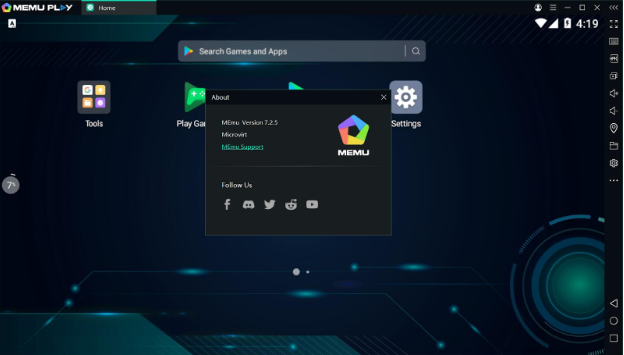
Supported Platforms: Microsoft Windows 11/10 with VT Enabled. Processor either Intel or AMD scoring at least 1500 in single-thread PassMark tests. Dedicated or built-in GPU with a PassMark score above 750. Support for DirectX 11 and OpenGL 4.5 or higher with a minimum of 8GB RAM and 10GB of free disk space.
Android Version(s) Supported: Android 5 (Lollipop), Android 7 (Nougat), and Android 9 (Pie) for advanced compatibility with newer games.
Pricing: Completely free but may show ads.
Key Features:
- Root access
- Custom key mapping for keyboard, mouse, and gamepad
- File sharing between Windows and Android
MEmu is an Android emulator that delivers smooth and powerful performance on Windows PC. It features advanced customizability options, including keyboard/joystick controls, as well as screen touch, for an improved gaming experience. MEmu offers flexibility in allowing users to adjust CPU Cores, allocate memory, set desired resolution and device, and even enable root mode for advanced controls. Moreover, the multi-instance manager allows users to run multiple accounts simultaneously, providing an advantage in strategic games. Additionally, features like GPS simulation enable users to run location-based apps and games, such as Pokémon Go. MEmu is known for delivering high-end performance, but it requires a moderately high-end PC to achieve smooth performance due to its resource-intensive nature.
|
|
|
|
|
|
6. Genymotion
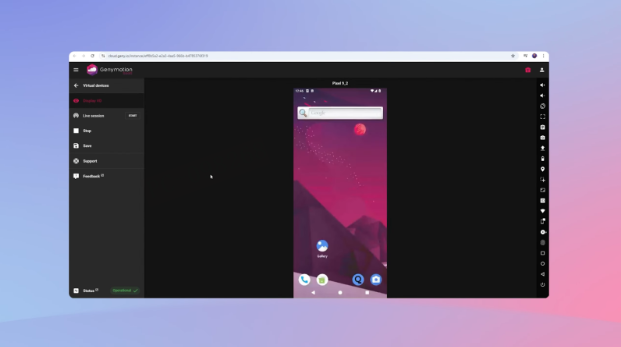
Supported Platforms: Windows 10/11 (64bit), Linux (64bit), macOS (x86_64, arm64) and AWS, Azure (cloud)
Android Version(s) Supported: up to Android 16 on cloud devices
Pricing: Free for personal desktop use. $412 per user annually for pro or enterprise plans, and separate cloud pricing.
Key Features
- GPS and Camera Simulation
- Battery and Network Testing
- CI/CD Integrations
For app developers, QA testers, and enterprises that are looking for reliability, this emulator could be a great choice. Genymotion enables developers to test virtual Android devices with automated systems, ensuring that apps function correctly across various Android versions without requiring manual switching. Moreover, it allows dozens of devices to run simultaneously, utilizing hardware acceleration and cloud scalability to deliver smooth performance.
|
|
|
|
|
|
7. Andy
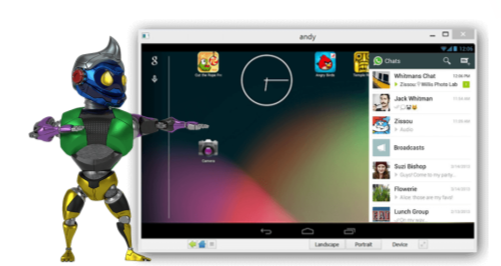
Supported Platforms: Windows 7/8/10/11 and macOS. Requires a dual-core CPU, 3GB RAM, 10GB of free storage, and OpenGL ES 2.0 compatibility.
Android Version(s) Supported: Andy doesn't specify exactly any API levels, but they market themselves as a platform that offers an experience of Android apps that is sufficient and up to date for everyday apps.
Pricing/licensing: Free version with advertisements and a paid version called "Andy Pro" offering additional features and an ad-free experience.
Key Features:
- Multi-Device Support
- Syncs with your phone
- Phone as a controller/joystick
- Keyboard and Controller Mapping
- Cloud Save Integration
- Root Access
Andy is known for delivering smooth app performance, making it ideal for a seamless, lightweight gaming experience. Options like using your phone as a controller add a unique add-on for a smooth gaming experience. Additionally, Andy provides smooth app performance, making it ideal for a seamless, lightweight gaming experience. With options like your phone as a controller, it adds a unique add-on for a smooth gaming experience.
|
|
|
|
|
|
8. KOPlayer
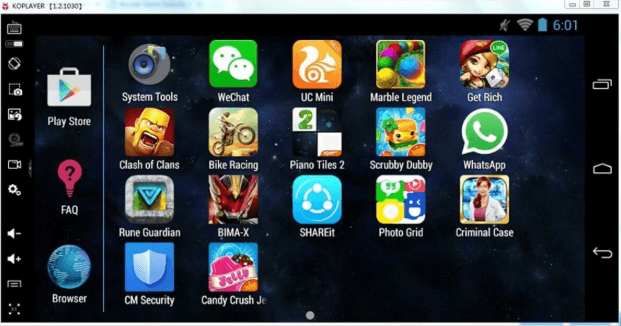
Supported Platforms: Supports Windows 7,8,10,11, and macOS.
Android Version(s) Supported: Although KOPlayer runs on Android 4.4 KitKat or older apps.
Pricing/Licensing: KOPlayer is entirely free, but users may feel behind due to its outdated terms of updates and support for modern apps.
Key Features:
- Built-in Google Play support
- Key-mapping for games
- Screen recording
- Extremely Lightweight
- File Sharing
KOPlayer is an emulator made for users who want to run lightweight Android apps or classic lightweight game titles on low-end PCs. It's especially suited for gamers who wish to achieve smooth performance on low-spec hardware. Moreover, KOPlayer is known for its efficiency. Users can run the emulator on just 2 GB of RAM and a dual-core CPU. You can expect smooth gameplay and a smooth experience without putting too much strain on your system. However, due to its dated Android version, support for modern apps and security is compromised.
|
|
|
|
|
|
9. BlissOS
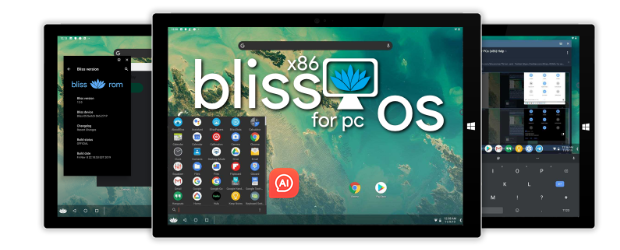
Name & Supported Platforms: Windows 7 64 / Windows 8 64 / Windows 10 64 / Windows 11. Requires Intel or AMD 64-bit CPU, 2GB minimum RAM, while 4GB is recommended, and storage of at least 8GB of free space. Graphics requirements are an integrated or dedicated GPU with OpenGL support and UEFI or Legacy BIOS support.
Android Version(s) Supported: BlissOS 16, which is currently the latest version, is based on Android 13 (QPR2), ensuring that the emulator is compatible with the latest apps and games.
Pricing/licensing: BlissOS is open source and completely under GPLv3. For enterprise use, commercial licenses are also available.
Key Features:
- Desktop-style taskbar
- Multi-window support
- Bliss OS is suitable for low-end devices
BlissOS is ideal for users who want to experiment with technology, explore its capabilities, or revive their old systems with a fully functional Android desktop. Developers who prefer open-source flexibility also prefer BlissOS. Additionally, it relies directly on hardware rather than virtualization, enabling it to deliver significantly faster and more reliable performance on supported devices. For devices that are using older hardware, Bliss OS Go could be a perfect fit.
|
|
|
|
|
|
10. PrimeOS
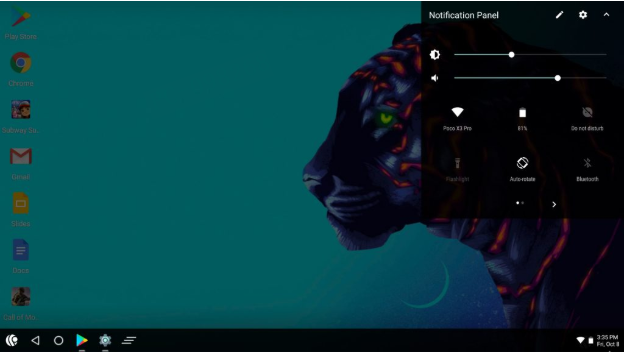
Name & Supported Platforms: PrimeOS is installable through ISO or a Windows-based installer and supports x86 PCs and laptops. It requires an Intel/AMD processor with 64-bit support, 4 GB of RAM, 16 GB of storage space, and a graphics card with OpenGL 3.0 or higher.
Android Version(s) Supported: It all depends on the build. PrimeOS is known for supporting Android versions 7 (Nougat) through approximately 11, which provides decent support for most apps.
Pricing/licensing: Due to PrimeOS support from its community and based on the Android-x86 project, it's completely free to download and use.
Key Features:
- Built-in key mapping
- Windows-like desktop
- Multi-window support
PrimeOS is designed for gamers who want to repurpose their old PCs for a seamless desktop-style Android experience and seamless multitasking. Additionally, it runs directly on hardware, providing its users with swift responsiveness and optimized gaming performance, especially when combined with its built-in key-mapping tools. If you are using an x86 PC or laptop and want to experience Android, PrimeOS could be a perfect fit.
|
|
|
|
|
|
11. ARChon
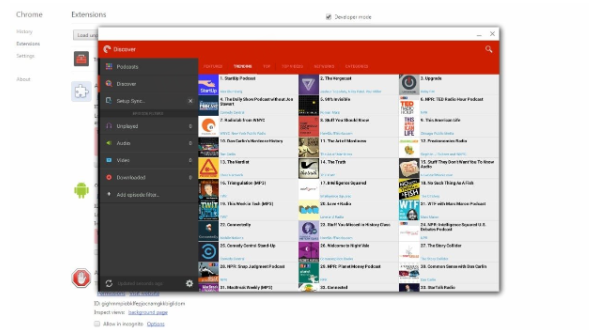
Supported Platforms: Windows 7 64 / Windows 8 64 / Windows 10 64, macOS, Linux (Chrome), and Chrome OS
Android Version(s) Supported: Not stated explicitly, but it all depends on APKs that are converted manually. Usually, ARChon is supported for lighter apps, not offering full device-level support.
Pricing: ARChon is free and open source, meaning all users can run it at no cost.
Key Features
- Integrates seamlessly with Chrome
- Supports APK conversions
- Efficient performance
ARChon is an extension for Chrome and is designed for users who want to run an Android app as a Chrome OS app on their system, whether it's Windows, macOS, Linux, or Chrome OS To run an Android app, users need first to convert their Android APK files into Chrome OS apps using chromeos-apk. For users seeking cross-platform compatibility with simplicity and lightweight performance, ARChon could be an option worth considering. It allows for running on systems where installing bulky software isn’t feasible, such as on school or work laptops.
|
|
|
|
|
|
12. Droid4X
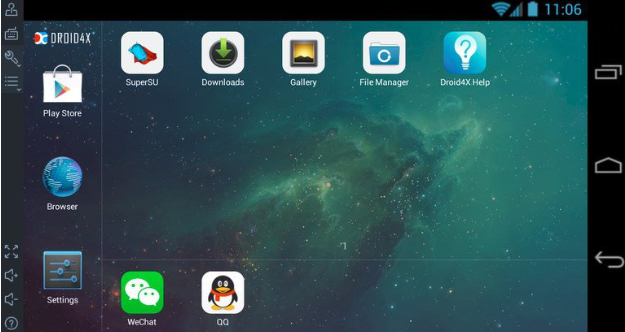
Supported Platforms: Windows 7 / Windows 8 / Windows 10 or macOS. Requires 2GB RAM or more, a dual-core processor or higher, and OpenGL 2.0 support
Android Version(s) Supported: Based on Android 4.2.2, most familiar, stable, yet outdated for today's standards.
Pricing: Completely free to use, but is discontinued, meaning there are no official updates or support.
Key Features
- Synchronization between the host computer and the virtual Android device
- Multiple instances of the emulator can be run simultaneously
- Customizable Controls
Droid4X is an emulator designed for users who want to repurpose their old, outdated laptop or system to run older Android apps and games without demanding high resources. Options to customize key mappings and controls, along with built-in screen recording, allow users to capture moments and experiment with different settings to pass the time, stream, and enjoy themselves when they are free. Although Droid4x is discontinued, making it struggle with updates and running modern apps, it still serves its purpose by breathing life into your old system, allowing you to enjoy a smooth Android experience without lag.
|
|
|
|
|
|
13. Remix OS Player
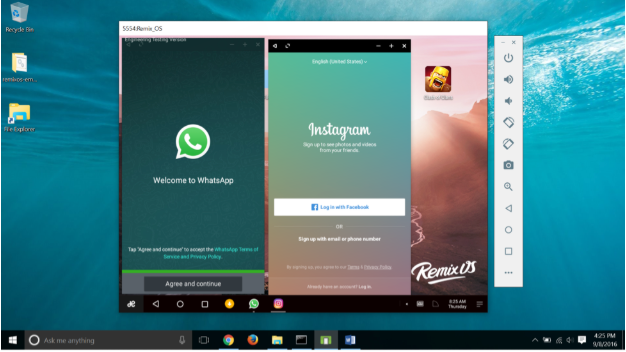
Supported Platforms: Operating System: Windows 7/8/10/11 (64-bit). Processor of Intel Core i3 or higher with 4GB RAM or higher, and at least 8GB of free disk space.
Android Version(s) Supported: Runs on Android 6.0 Marshmallow, modern when Remix OS player was released, but outdated by today's standards.
Pricing: Completely free to use and download, but has been discontinued.
Key Features
- Multi-Window support
- Seamless file sharing
- Customizable Key Mappings
Remix OS Player is for users who are looking for an Android experience on their desktop operating system. With multi-window support, students, office workers, or multitaskers looking to run multiple Android apps simultaneously can benefit from Remix OS Player's multi-windowed environment, which provides a feel similar to Windows, but with Android apps running concurrently. Additionally, gamers who want to play Android games on a desktop, even on older systems, can run them efficiently and enjoy them with the help of Customizable Key Mappings on Remix OS Player emulator.
|
|
|
|
|
|
14. Samsung Galaxy Emulator
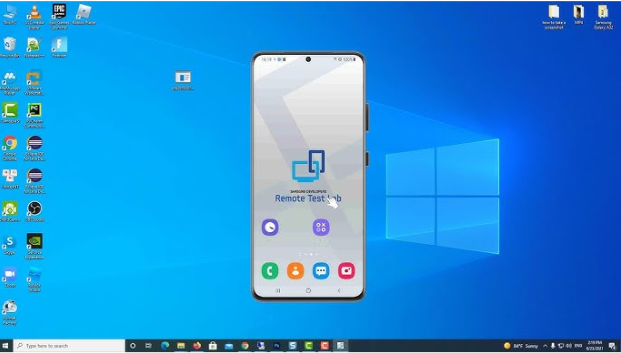
Supported Platforms: Windows and macOS, specialized for building and optimizing apps for Samsung devices.
Android Version(s) Supported: Works for multiple Android versions, including the latest Samsung Galaxy Builds.
Pricing: It is entirely free and comes under Samsung's SDK package.
Key Features
- Gives developers a feel of Samsung-specific hardware and APIs like S Pen and Edge Panels
- Provides accurate device emulation with various screen sizes
- Designed to integrate with Samsung’s development ecosystem
Samsung Galaxy Emulator is a platform for developers that allows them to run and test apps and optimize them specifically for Samsung devices. Samsung, in their phone, offers features such as S Pen gestures, edge screen shortcuts, or custom UI overlays, so to make sure the app works properly and is optimized enough to run with these features, developers use the Samsung Galaxy Emulator to ensure the app runs as expected on Samsung's hardware. Unlike other emulators, Samsung Galaxy Emulator isn’t designed for gaming or casual app use, but is valuable for professional developers looking to optimize apps for the Samsung ecosystem.
|
|
|
|
|
|
15. Android Studio Emulator
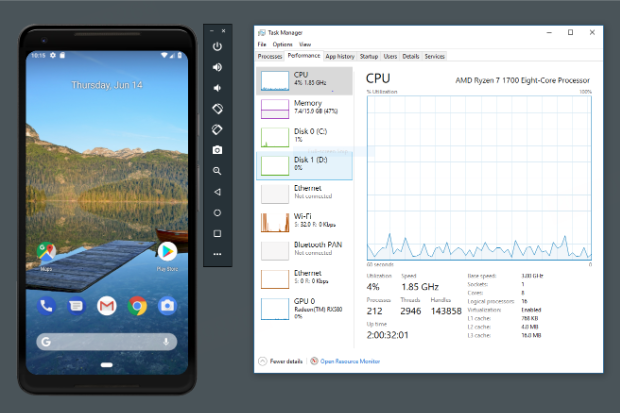
Supported Platforms: 64-bit Windows 10 or higher, macOS 12 or higher, Linux, or ChromeOS operating system. Requires a multi-core CPU with virtualization (Intel VT-x or AMD-V), 8 GB RAM minimum (16 GB+ recommended), 16 GB disk space, and GPU acceleration via OpenGL
Android Version(s) Supported: Supports all Android versions, from legacy builds to the latest versions.
Pricing: Completely free
Key Features
- Support of multiple devices and various screen sizes
- Advanced debugging tools for developers
- Simulation for network conditions, battery state, and sensors.
Professional developers looking to build, test, and debug apps can utilize the Android Studio Emulator, which provides accurate emulation for multiple devices, including low-end phones, tablets, and even foldable devices, without requiring physical hardware. Moreover, developers can test real-world scenarios in simulations, such as poor network conditions, low battery states, and different resolutions, to ensure optimal performance without any significant issues or bugs. Android Studio Emulator is a gem for developers who want their apps to be market-ready and tested in real-world conditions.
|
|
|
|
|
|
16. Phoenix OS
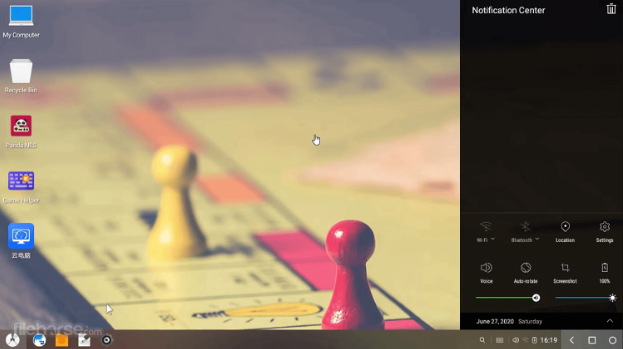
Supported Platforms: Intel x86 or AMD processor with virtualization extensions (Intel VT-x/AMD-V), 2GB RAM or more, 16GB of free disk space, Intel HD Graphics or dedicated GPU with OpenGL 3.0 support, and BIOS/UEFI Legacy or UEFI boot mode
Android Version(s) Supported: Based on Android 5.1 Lollipop and 7.0
Pricing: Completely free to use and download
Key Features
- Gaming-focused experience
- App Compatibility
- Built-in file manager and system tools
Phoenix OS is designed for users who want to experience Android on their setup, run games, and multitask, combining the versatility of a traditional PC layout with a vast library of Android apps. For running mobile games on PC, there are custom key mappings for gamers that they can set up and gain an advantage over mobile gamers through keyboard and mouse. Phoenix OS is not only great for gamers, but it also provides multitaskers with a windowed mode, allowing them to run multiple apps side by side just like on Windows. So, if you are looking to repurpose your old laptop or system and run various games or apps to increase your productivity, Phoenix OX is your go-to option.
|
|
|
|
|
|
17. Leapdroid
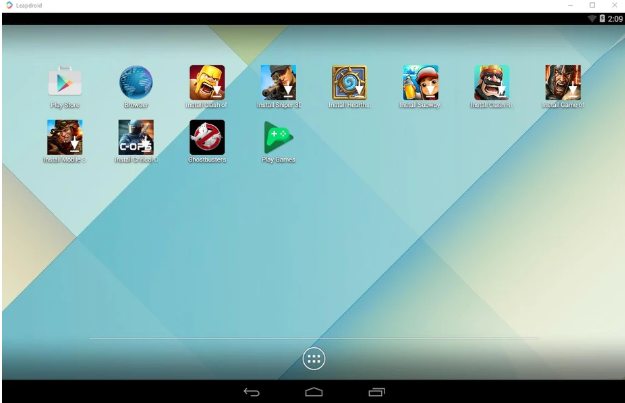
Supported Platforms: Windows 7 / Windows 7 64 / Windows 8 / Windows 8 64 / Windows 10 / Windows 10 64, 2GB RAM, 2GB of free disk space, and a CPU with virtualization technology support (Intel VT-x or AMD-V).
Android Version(s) Supported: Android 4.4 Kit Kat, old yet very stable
Pricing: Free but Discontinued
Key Features
- High performance even with a dated setup
- Multiple Instances of Android can be run simultaneously
Leapdroid is a lightweight emulator built for gamers who want to repurpose their old setup to run Android games without any compromise on performance. It is a highly optimized emulator that can run 99% of Kit/Kat compatible apps and games Lag-free. Additionally, Leapdroid offers gamers a high degree of customizability, including screen resolution adjustments, device model selection, and the ability to map keyboard and mouse inputs to touchscreen controls. Furthermore, for multitasking or social media usage, users can run multiple instances of Android simultaneously and can also install APK files directly onto the emulator.
|
|
|
|
|
|
18. SmartGaGa
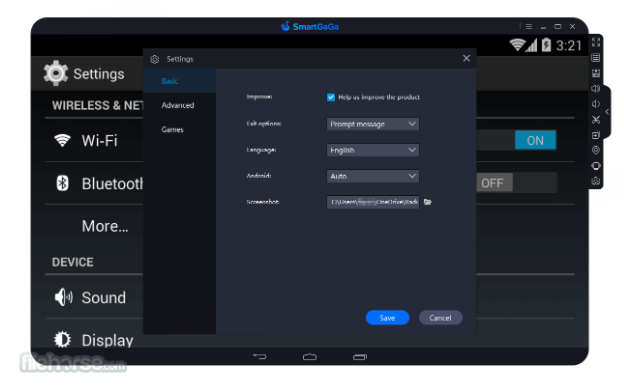
Supported Platforms: Windows 11, Windows 10, Windows 8, or Windows 7. Processor of Dual-core Intel or AMD (Intel Core i5 or higher recommended), Graphics Card, either Nvidia or Radeon 64 MB onwards, DirectX 11 or higher, minimum RAM of 4GB, and 4 GB Free Disk Space. Internet connection for initial setup and game downloads.
Android Version(s) Supported: Android 7.1.2 (Nougat), if issues like lag or hindered performance are experienced, go towards SmartGaGa Android 4.4.2 (KitKat)
Pricing: Completely free.
Key Features
- Good support for FPS and MOBA games
- High-performance for a smooth gaming experience
SmartGaga is an emulator designed to run games with high graphics. SmartGaGa utilizes advanced virtualization technology to ensure the game runs smoothly and lag-free, providing rendering effects and offering more stunning images on larger screens. Users can run multiple instances of games or accounts to help them gain a competitive advantage over other gamers. Moreover, SmartGaGa allows flexibility of controls and customization for game controls for keyboard and mouse, allowing gamers to do gaming in the controls that they are most familiar with. One of the most distinctive features of Smart GaGa is Macros and Scripts. It allows users to automate repetitive tasks and enhance gameplay efficiency.
|
|
|
|
|
|
19. Gameloop (Tencent Gaming Buddy)

Supported Platforms: Windows 7/8/10/11 (32 or 64-bit), processor either Intel or AMD CPU (x86 / x86_64), 4GB RAM or more, DirectX 11 compatible GPU, at least 4GB of free disk space required.
Android Version(s) Supported: Runs originally on Android 4.4 (Lollipop) and can be upgraded to Android 7.1.2 (Nougat) using a specific game installation method.
Pricing: 100% free to download and install.
Key Features
- Clean and user-friendly interface
- High-quality graphics based on the capabilities of the PC
- Performance optimization for a smooth and lag-free gaming experience
Tencent Gaming Buddy is a heaven for PUBG Mobile and Call of Duty Mobile gamers who are looking to improve their game using a keyboard, mouse, and a bigger screen with better FPS. Since it is the official gaming emulator for these games, the performance you get is unmatched and optimized in a way that provides users with a smooth gaming experience, accurate controls, and fewer compatibility issues and glitches when running games. With built-in screen recording features and streaming options, Tencent Gaming Buddy is an excellent choice for streamers. Although it's heavily made and optimized for gaming, Tencent Gaming Buddy may struggle running general Android apps, but for competitive gaming, it's the best option you can get.
|
|
|
|
|
|
20. MSI App Player

Supported Platforms: Windows 7, 8, 10, or 11 (64-bit). Intel or AMD processor with virtualization technology (VT-X/AMD-V) support, 4GB RAM or more. 2GB of free storage space and a DirectX 11 or later compatible graphics card
Android Version(s) Supported: Not specified
Pricing: App is free to install and use, with no hidden charges or subscription fees.
Key Features
- High performance based on CPU, GPU, RAM, and Cooling System
- Up to 240 FPS, low-latency mobile gaming
- Supports keyboard, mouse, and game controller
- Game Locally or Play on Cloud
If you are a gamer who is using MSI hardware, MSI App Player is an Android emulator that leverages the system’s GPU and CPU to give a smooth gaming experience. It's known for providing a lag-free, low-latency, smooth gaming experience running mobile games up to 240 FPS using MSI’s refined gaming optimizations. Moreover, players can run multiple instances of games and accounts, such as Clash of Clans, Mobile Legends, or any other games, to boost efficiency in planning and strategic games. MSI App Player could work on a non-MSI build, too, but gamers using MSI hardware benefit the most due to its custom enhancements. MSI App Player is an emulator that is not designed for developers, but for gamers who require peak performance and smooth gameplay.
|
|
|
|
|
|
21. Additional promising options: Lemuroid, ARC Welder, AMIDuOS, Anbox, YouWave, VirtualBox + custom Android, OpenThos, etc.
In addition to the emulators mentioned above, there are many other emulators that users may prefer for testing and development, gaming, or running casual apps, with many of them fulfilling the specific needs of their users. Below, we have mentioned some of the emulators you can try that may be the best fit for you.
- Lemuroid: An all-in-one emulator built for retro gaming. It runs on Android devices rather than PCs and supports classic consoles, including NES, SNES, and PlayStation. It's ideal for a portable retro gaming experience.
- ARC Welder: It is a Chrome extension that allows developers to test and run Android apps directly on the Chrome browser. Currently, it is discontinued, but it highlights the potential of lightweight browser-based emulation.
- AMIDuOS: It was a premium emulator for Windows PC providing a very similar Android experience and performance while featuring full tablet mode and app compatibility. It has also been discontinued.
- Anbox: It is a Linux-only emulator that runs Android in a containerized environment. Anbox is a good choice for Linux users or developers who want seamless Android integration without the added burden of full virtualization.
- YouWave: YouWave is a lightweight Windows-focused emulator preferred for daily productivity and Android apps.
- VirtualBox + custom Android and OpenThos: These emulators provide a platform to bring Android apps to the desktop in multiple experimental ways. It is appealing to tech lovers who enjoy customization.
What to Consider When Choosing an Android Emulator (2025 Criteria)
Android emulators are meant for one thing, and that is to run the Android operating system on a PC. They enable users to combine the benefits of an Android operating system and the power potential of a desktop PC. A PC’s CPU and GPU are built to provide raw power and sustained workloads. In comparison, smartphones have SoC chips that are meant to provide power efficiency.
Android emulators offer advanced features, including superior keymapping, multi-instance support, and precise hardware simulation, making them relevant to the 2025 criteria. Here are some features that users should consider when selecting an Android emulator for their next project:
System Compatibility
Ensuring that you have a compatible operating system installed on your PC is the first step. The Android emulator is a software program that utilizes the PC's operating system resources to run the Android OS. Therefore, you can either have Windows, Mac, or Linux already installed on the computer. Some Android emulators boot directly into the Android environment without the need for any OS, but we will mention them as bare-metal Android OS.
Performance and Resource Usage
Determining whether an Android emulator efficiently utilizes your PC's full resource potential can be challenging. Monitoring the performance of the application itself, including the Android app's performance, memory utilization, and space requirements, requires feedback from a variety of users. We will provide quantifiable performance and resource utilization details for each Android emulator.
Gaming Optimization
Android emulators designed for gaming offer advanced options that can enhance the gaming experience or give players a competitive edge over others. Some emulators can push framerates beyond the limits, providing the superior control and accuracy needed in some competitive games. Gamers can map keys and even log in with multiple accounts for a single game using the Android emulator.
Development Tools, Debugging, ADB Support
For developers aiming to test and debug their Android application, ADB (Android Debug Bridge) support is essential. It forms a connection between the computer and Android emulator, allowing developers to install and uninstall apps, transfer files, and view real-time logs (called "logcat") using a command line. It enhances productivity for developers.
Moreover, the support for development tools in emulators enables the simulation of real-world scenarios to check how an application behaves, allowing data to be taken from an Android device without the need to invest in a physical device.
UI/UX and Accessibility
The Android emulator with a user-friendly and clean user Interface (UI) is key. Convenient access to features like a dock or sidebar with quick controls, such as volume, screenshots, and screen recording, elevates the user experience (UX). It's also vital to evaluate how easily you can access frequently used tools and controls when picking the ideal Android emulator.
Extra features: Root Management, App Store Support, Security, etc.
Some emulators come with a built-in toggle to enable or disable root access directly from the settings. It allows seamless switching between rooted and unrooted environments. This is otherwise challenging in Google's official Android Studio Emulator. Having a Google Play Store for
Value: Free, Freemium, Paid Models
Depending on the business model of the Android emulator, there can be price variations. The free version is accessible to all and generates revenue through in-app advertisements, affiliate partnerships, and sponsored apps that come pre-installed. The freemium model offers free services with limited options, and users can opt for premium services through a paid subscription, unlocking additional features for professionals. Then there are paid models that are only accessible after a subscription. We will specify the emulator type in each Android emulator.
Specialized Use Cases in 2025
Best Android Emulators for Gaming
- MuMuPlayer: The 2025 Top Recommendation and a powerful performer with support for 240+ FPS, surpassing the native 60 FPS limit. Developed by a major gaming company, it boasts high stability and reduced memory usage.
- BlueStacks: An industry veteran known for its comprehensive resource control, including Eco Mode to reduce CPU/GPU usage. It also offers macro creation and a virtual GPS feature.
- LDPlayer: A powerful performer on low-end PCs, with multiple versions that support different Android OS versions.
- MSI App Player: This emulator leverages the system's GPU and CPU to provide up to 240 FPS and low-latency gaming, especially for users with MSI hardware.
- Gameloop: Developed by Tencent Games, it's the official emulator for titles like PUBG Mobile and Call of Duty Mobile, offering unmatched optimization and a user-friendly interface.
- SmartGaGa: Designed to run games with high graphics, utilizing advanced virtualization technology for a smooth and lag-free gaming experience, with good support for FPS and MOBA games.
- Phoenix OS & PrimeOS: These are more like operating systems than traditional emulators. They are ideal for repurposing old PCs for a desktop-style Android gaming experience, with built-in key mapping and multi-window support.
For Low-End PCs & Lightweight Use
- MuMuPlayer: Combines powerful performance with a surprisingly lightweight design. It’s optimized to run smoothly even on mid-range PCs, ensuring both gamers and developers can enjoy high stability without heavy resource consumption.
- KOPlayer: An extremely lightweight emulator that's perfect for users who want to run older apps or simple games on low-spec hardware. It can run on as little as 2 GB of RAM.
- Andy: Delivers smooth, lightweight app performance and features a unique "phone as a controller" function.
- Droid4X: A discontinued but lightweight emulator designed to repurpose old systems to run older Android apps and games without demanding high resources.
- ARChon: An extension for Chrome that's ideal for running light apps on systems where installing bulky software isn't feasible. It’s the most lightweight option.
For Productivity and Multi-Tasking
- MuMuPlayer: For productivity and multi-tasking, MuMuPlayer’s Multi-Instance feature lets you run multiple games or apps simultaneously—whether it’s managing several accounts, testing different app environments, or simply boosting efficiency. Its built-in synchronization tool ensures smooth parallel operations without lag.
- Remix OS Player: Designed for users looking for a desktop-style Android experience with multi-window support for running apps side-by-side.
- Phoenix OS & PrimeOS: Both offer a Windows-like desktop environment with multi-window support, making them great for multitaskers who want to run multiple apps at once.
For Developers & QA Engineers
- Android Studio Emulator: The official Google tool for developers. It provides a free and accurate testing environment with advanced debugging tools, supporting all Android versions.
- MuMuPlayer: Supports ADB for app testing and customization, with stable multi-instance environments—ideal for developers and QA engineers.
- Genymotion: A robust, enterprise-focused emulator that allows developers to test apps with automated systems, and features GPS and camera simulation and CI/CD integrations.
- Samsung Galaxy Emulator: A specialized platform for developers to test and optimize apps specifically for Samsung devices and their unique features like the S Pen and Edge Panels.
For Specific Games, Genres, or Retro Titles
- Gameloop: As mentioned above, it's the best option for competitive, genre-specific games due to its official developer support.
- KOPlayer & Droid4X: Their use of older Android versions (KitKat and Jelly Bean) makes them suitable for running retro titles that still support those versions.
- BlissOS: An open-source option that is suitable for users who want to experiment with technology and revive old systems for a highly customized Android experience.
Frequently Asked Questions (2025 Update)
Q: Is it legal and safe to use Android emulators in 2025?
A: Yes, Android emulators are generally safe and legal to use in 2025, as long as you take some precautions:
- Always download from the official website or a trusted/reputable source, rather than random links.
- Remember, emulators only replicate the Android environment on a PC or Mac and do not break any laws by themselves.
- The real risks usually come from unverified or shady downloads, which may include malware or security threats.
- To stay safe, stick to verified platforms and avoid third-party installers.
Q: Will these emulators support the latest Android apps/games?
A: Support for the latest apps and games can vary depending on the emulator you choose:
- Some lightweight emulators are designed for low-end PCs and may run on older Android versions, which can limit compatibility with new apps or games.
- Most mainstream emulators today support Android 9–12 or higher, making them capable of running modern apps smoothly.
- If your goal is to play the latest releases, look for emulators that are regularly updated and actively maintained.
- On the other hand, avoid using emulators that are discontinued, as they may quickly fall behind in compatibility.
Q: How can I improve emulator performance on my PC?
A: Running an emulator smoothly depends not just on the software but also on how your PC is configured:
- First, enable virtualization (VT-x / AMD-V) in your BIOS for better performance.
- Allocate at least 4 CPU cores and 4–8 GB of RAM to your emulator to ensure apps run without lag.
- Install the emulator on an SSD, which significantly reduces loading times.
- Keep your GPU drivers updated to avoid graphical glitches.
- Close unnecessary background tasks, especially when running resource-heavy games like COD or PUBG Mobile.
- If you’re on a low-end PC, don’t worry—simply choose an emulator that is well-optimized with lower system requirements, so you can still get a smooth experience.
Conclusion
Not all emulators are designed to serve the same purpose: running Android apps on Windows. They have some features that are different, catering to the needs of multiple users who look to fulfill various purposes and preferences. Some emulators are popular for competitive gaming, like MuMuPlayer. Meanwhile, some are made for developers, such as Android Studio, to test Android apps on a PC. For users who want a whole desktop-style Android experience, PrimeOS or BlissOS can be a great option. For users who want to repurpose their old PC or laptop with dated hardware, NoxPlayer or MEmu could be a great alternative.
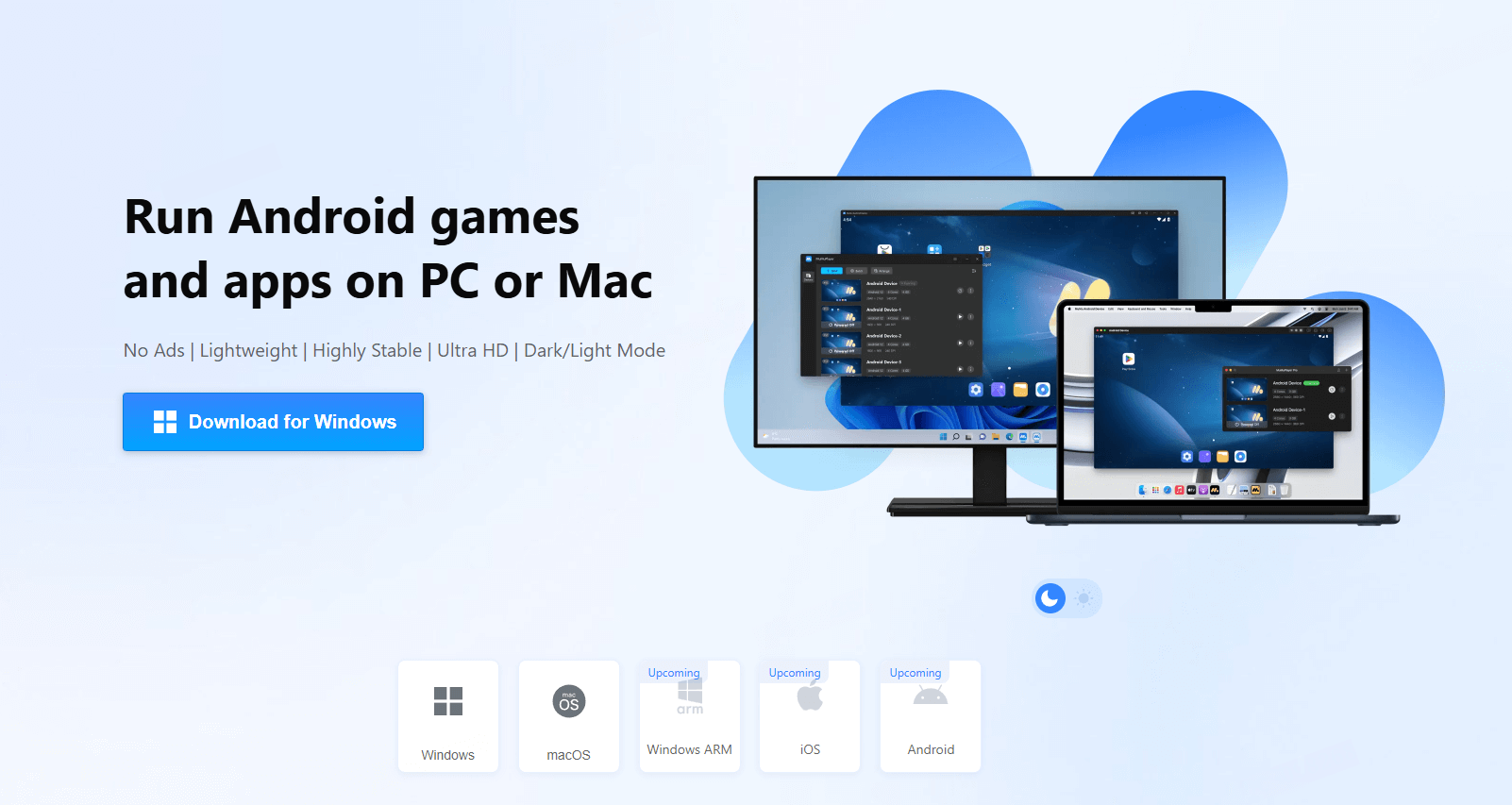
In short, the top editorial picks for 2025 is MuMuPlayer for gamers and for versatility, and Android Studio Emulator for serious app developers. These picks are based on our analysis, but the best pick for you depends on your own personal needs and requirements, be it gaming, app testing, or multitasking.
Still unsure which Android emulator to choose? Just download MuMuPlayer—a reliable option with 240+ FPS performance, smooth graphics, and excellent compatibility with the latest Android apps and games. Not only does it give outstanding performance for gamers, but it also gives app developers the ability to customize device properties and app performance to run Android apps on Windows without bugs. In short, it could be a surprise fit that you wanted but never noticed.
End of Article
